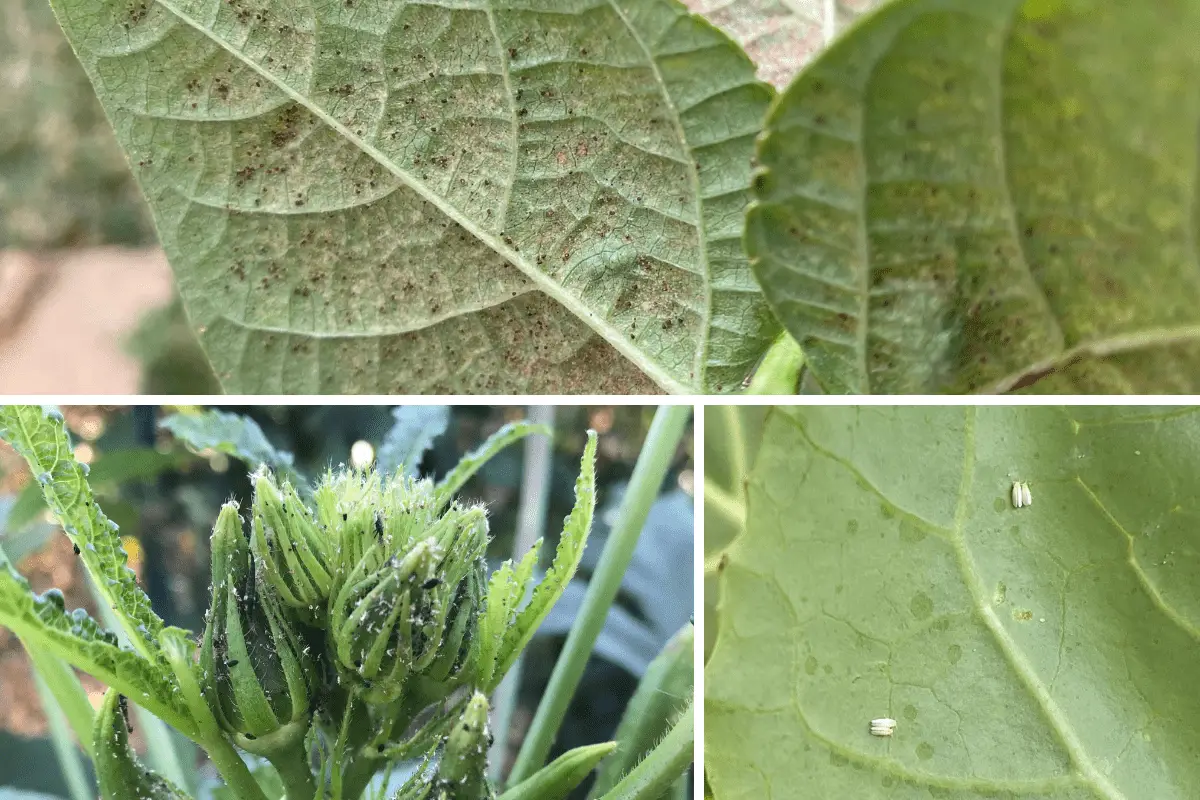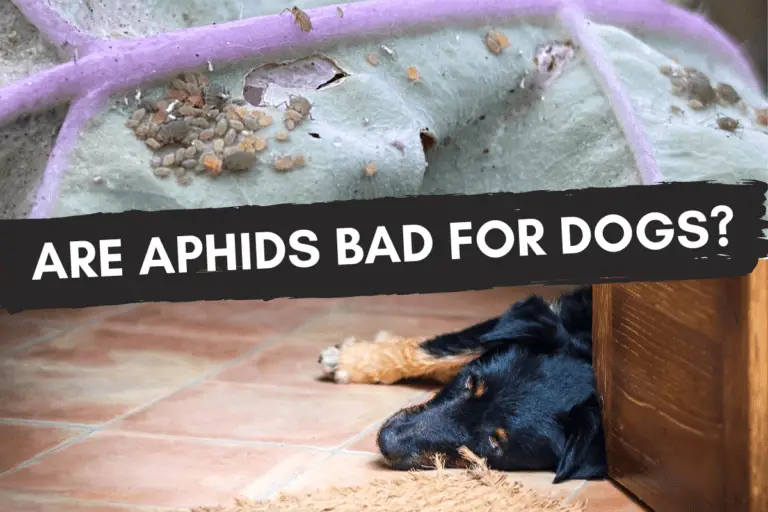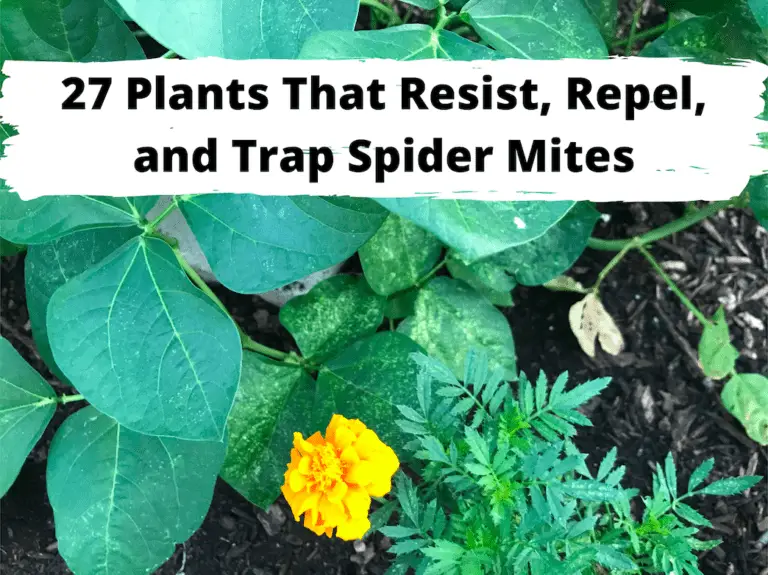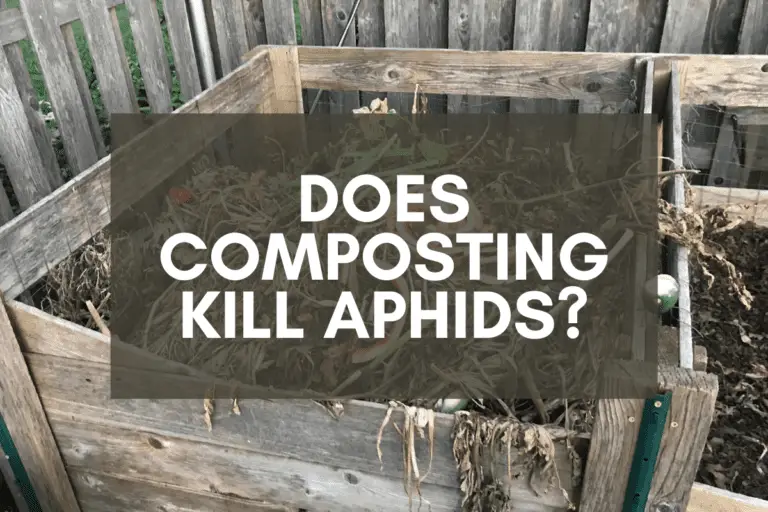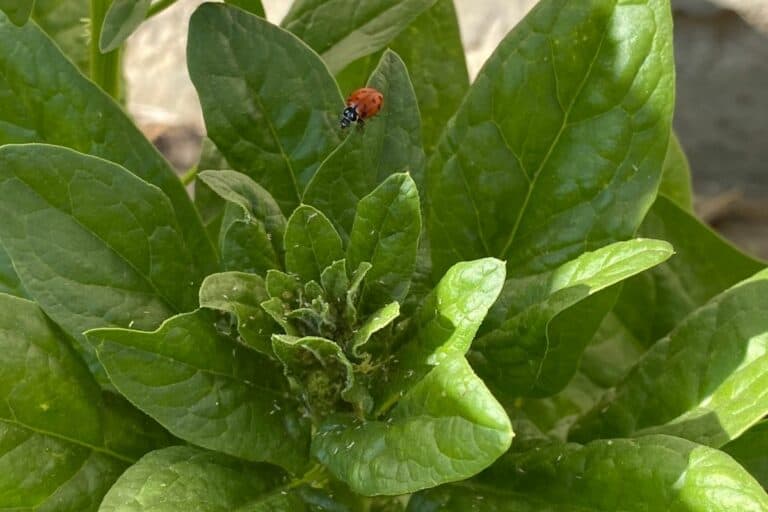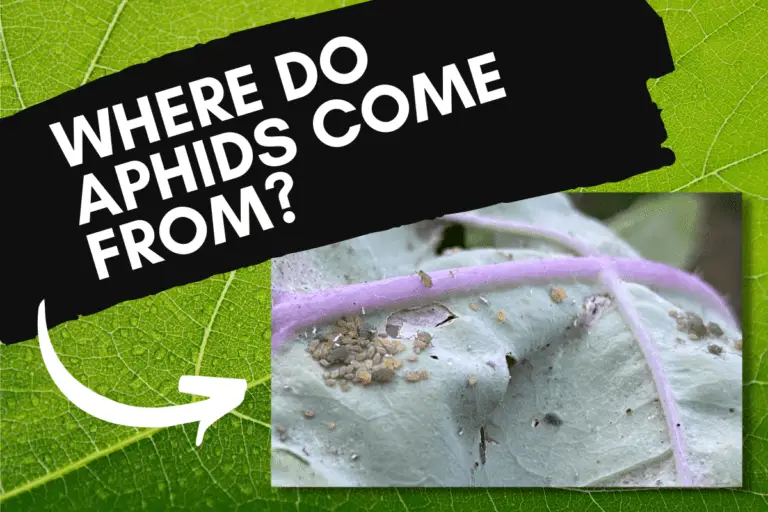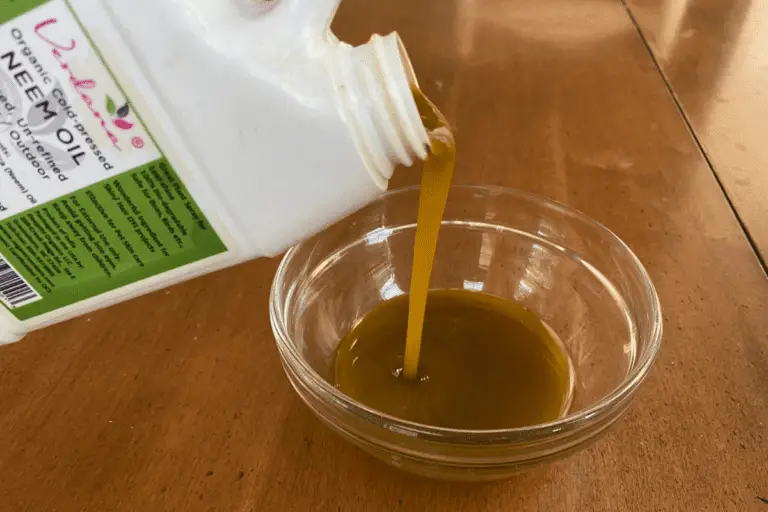What Bugs Does Neem Oil Repel and Get Rid Of?
If you’ve already heard about neem oil, then you likely know that it’s a natural insecticide prized by practically all organic gardeners. Its primary chemical compound–a naturally occurring chemical called azadirachtin–wreaks havoc on bugs’ biological, hormonal, and reproductive systems.
But what insects does it kill? And how does it kill them?
Although neem oil can kill off the nymphs of certain hard-bodied bugs–such as leaf-footed bugs, squash bugs, and stink bugs–it works best against soft-bodied insects such as aphids, psyllids, scales, spider mites, and whiteflies. After ingestion, neem oil will kill off such bugs in 4-7 days.
Disclosure: This post may contain affiliate links to some of my favorite products found on Amazon and other retail sites. I’ll earn a small commission from purchases made through those links, at no additional cost to you. Please read my product disclosure page to learn about the care I take when recommending products to my readers.
What this means is that neem oil is not a one-size-fits-all kind of product. It’s an incredible organic insecticide–the best one out there (in my opinion)–but it’s not a cure-all.
With this in mind, let’s take a look at the insects that fall into 3 different categories:
- bugs that are highly affected by neem oil
- bugs that are moderately affected by neem oil
- bugs that are slightly affected by neem oil
Once you know which bugs are impacted by neem oil–and how vulnerable they are to its chemical compounds–you’ll be more likely to stop garden infestations before they get out of control and less likely to waste money spraying neem oil on pests that require different treatments.
I’ve written a comprehensive, step-by-step guide to using neem oil effectively. Check it out if you’d like a detailed overview of what it is, how it works, and what you can do to make your spray as effective as possible.
But long story short, here are the products you need to have on hand if you want to do what I do in my garden:
- Neem Bliss Neem Oil: This works really well. It’s one of my go-to products.
- Verdana Neem Oil: Solid product. I’ve used this whenever Neem Bliss was out of stock.
- Small Garden Sprayer: I recommend a 1/2 gallon garden sprayer (roughly 3.8 liters) for most gardeners since you can’t store unused neem oil spray.
- Medium Garden Sprayer: I recommend a 1-gallon garden sprayer for larger pest infestations. But most times, the smaller garden sprayer will work just fine.
- Larger Garden Sprayer: You only need to mix up 2 gallons of neem oil spray if you’ve got a huge garden, a huge pest infestation, or a bit of both.
One final thing: If you look at the lists below, you might notice some bugs that appear in multiple categories. I did this because many bugs are vulnerable to neem oil when they’re in their larval or nymph stages but much less vulnerable when they’ve become full-grown adults.
Catch them early on, and you’ll likely succeed with neem oil. But if they’re adults, you’ll likely need to take a different approach to pest control.
What Bugs Does Neem Oil Kill?
Unlike a non-organic product such as Sevin–whose active ingredient, carbaryl, destroys bugs’ nervous systems after they come into contact with it–neem oil works differently. It typically does not kill on contact. It instead begins working once plant-eating bugs ingest it, and it usually takes 3-4 days to kill off garden pests, although it’s not unheard of for neem oil to take up to 7 days to do so for certain bugs.
This is why Sevin kills most bugs–including bees and other beneficial bugs–while neem oil kills off garden pests while remaining relatively harmless to helpful insects. The helpful bugs aren’t eating your plants and ingesting the oil. The bad ones are.
This is why neem oil takes time to do its insecticidal work and why it performs better on some pests than others. With this in mind, let’s take a look at how neem oil works against a wide variety of bugs.
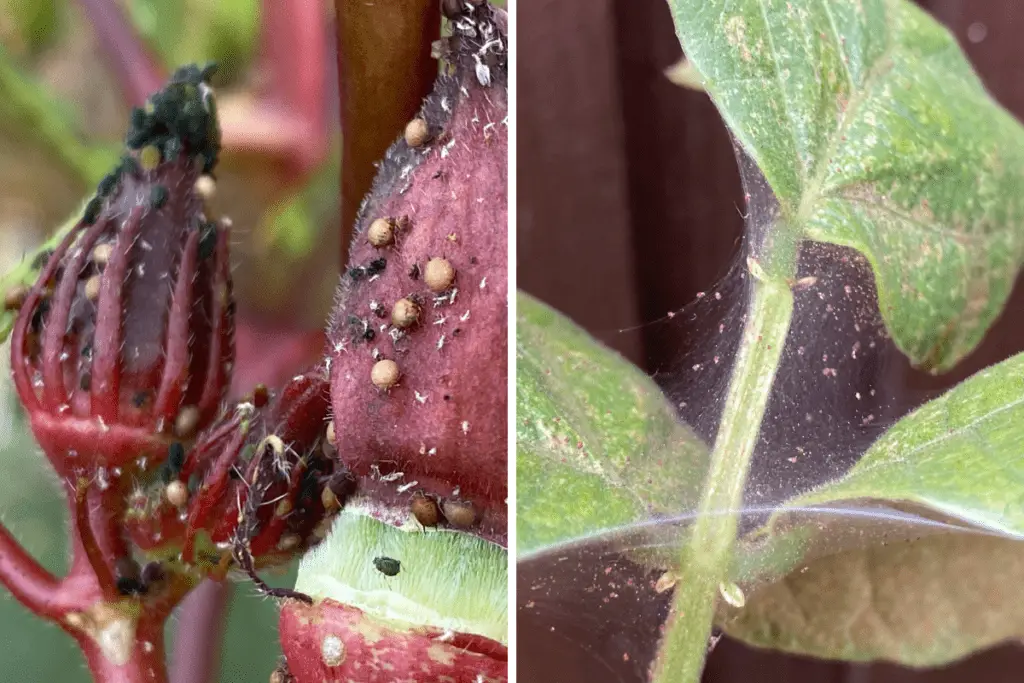
Very Effective
When I say that neem oil is “highly effective,” what I mean is that it will kill off most of these bugs most of the time when mixed and applied properly and regularly:
- Aphids
- Flies
- Fruit Flies
- Gnats
- Mites
- Mealybugs
- Psyllids
- Scales
- Spider Mites
- Thrips
- Whiteflies
To stop infestations, neem oil must often be reapplied 2-3 times. It never needs to be washed off because it’ll dry on the plant, but its chemicals will break down within a few days. I recommend reapplying neem oil once every 4-7 days for a few weeks, depending on the scope of the infestation.
If you’d like to take a look at my neem oil recipe, check out this article on using neem oil to kill spider mites. The same neem oil spray recipe can be used for any other garden pests.
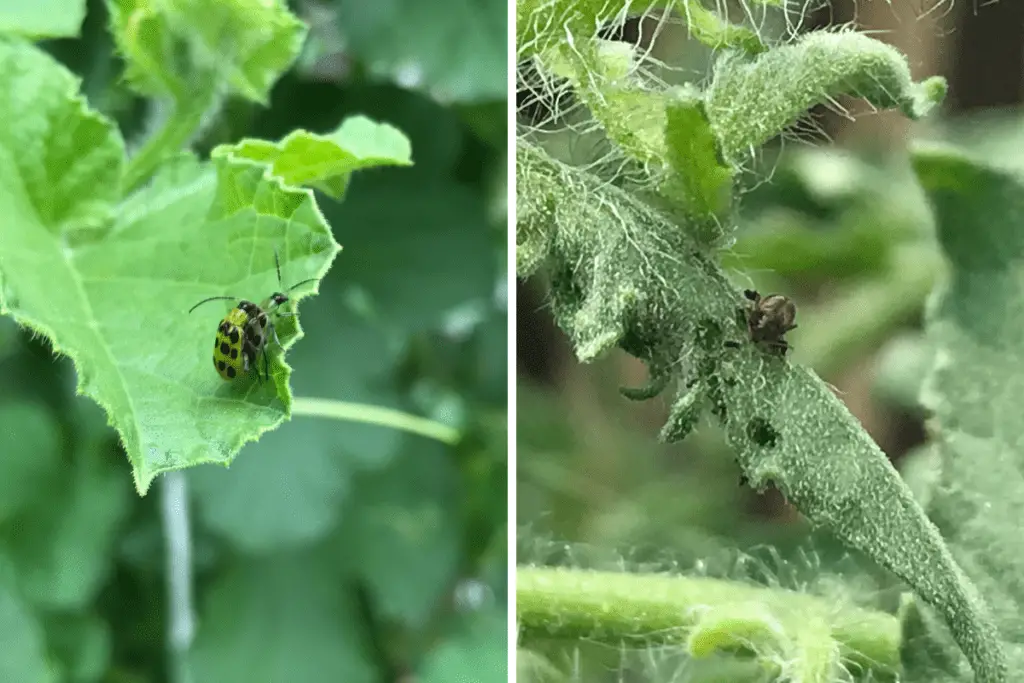
Moderately Effective
Unlike many soft-bodied bugs, other bugs are more resistant to neem oil, especially as they grow from their larval or nymph stages into their adult stage.
The bugs below may be impacted by neem oil early in their lives but are also able to withstand neem later on in ways that the bugs above cannot:
- Beetles
- Cockroaches
- Crickets
- Cucumber Beetles
- Flea Beetles
- Leafhoppers
- Leafminers
- Lice
- Midges
- Mosquitoes
- Moths
- Potato Beetles
- Sawflies
- Spider Mites
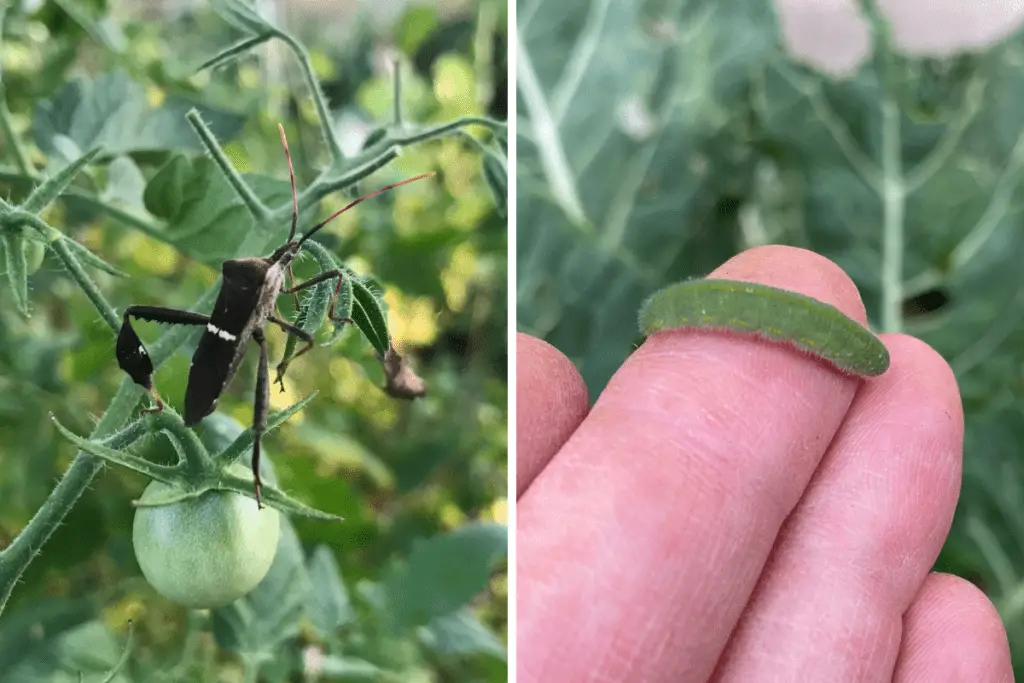
Slightly Effective
For certain pests, neem oil will have a milder impact on them due to their hard shells, their ability to withstand oily sprays, or their preference for foods other than plant foliage.
If neem oil impacts these bugs at all–which is not always guaranteed–it’s most likely to do so when they’re in their earliest stages but not when they’ve become full-grown adults:
- Ants
- Armyworms
- Beetles
- Cabbage Worms
- Fleas
- Grasshoppers
- Hornworms
- Leaf-Footed Bugs
- Squash Bugs
- Squash Vine Borers
- Stink Bugs
- Weevils
Does Neem Oil Kill Bugs Instantly?
Unlike Sevin dust and other man-made chemical insecticides, neem oil typically doesn’t typically kill bugs on contact. It works best when ingested, which allows the azadirachtin to infiltrate and disrupt bugs’ biological systems.
When bugs ingest neem oil, they’ll generally die in 4-7 days because they’ll start experiencing a wide range of problems, impacting their ability to feed, molt, and reproduce.
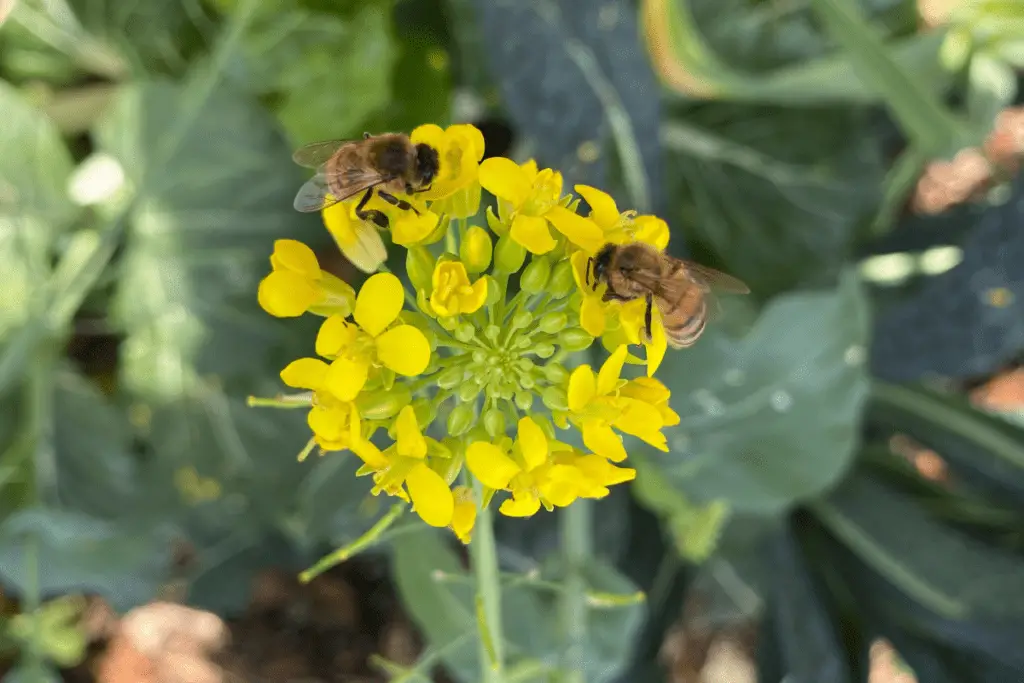
Is Neem Oil Harmful to Bees and Butterflies?
When applied as a foliar spray, neem oil will not harm bees or butterflies unless it’s directly sprayed on them. These insects do not eat plant foliage, so they will not ingest or absorb any azadirachtin.
But it’s key to apply neem oil sprays in the early evening. Not only will you avoid any chance of plant burns the following day. You’ll also ensure that you’re not spraying beneficial pollinators directly since they aren’t usually active that late in the day.
Does Neem Oil Kill Other Good Bugs?
In most circumstances, neem oil will not harm beneficial bugs such as ladybugs, lacewings, or parasitoid wasps. These bugs feast on garden pests, not plant foliage, so they won’t get any azadirachtin in their systems.
Beneficial pollinators such as hoverflies or moths—and other insects that play important roles in your garden’s ecosystem (ants, assassin bugs, ground beetles, and spiders)—won’t generally be harmed by neem oil unless you spray them directly and coat them in neem oil.
Given the contents of neem oil spray solutions, both the oil itself as well as the liquid soap that’s used as an emulsifier, if you spray insects directly, you’ll cover them in an oily, soapy solution. Even if you don’t kill them, you’ll temporarily make it harder for them to live and do their work.
To avoid this, take a quick look at your plants before spraying them and apply neem oil as late in the day as possible.
What Bugs Does Neem Oil Not Kill Easily?
Neem oil does not work well when sprayed on or near adult hard-bodies bugs such as leaf-footed bugs, squash bugs, and stink bugs. Such bugs will typically fly or scamper away, but they won’t die off.
Other bugs that resist neem oil best are the adult forms of centipedes, crickets, grasshoppers, Japanese beetles, slugs, and weevils. These insects won’t ingest azadirachtin and will generally hold up if sprayed directly with neem oil.
Some people claim that neem oil works well on a range of worms (armyworms, cabbage loopers, hornworms, etc.), but I’ve had mixed results with this approach and thus prefer to use a Bacillus Thuringiensis (BT) spray instead.
More Information
I’ve been writing about neem oil a lot recently since I think it’s the best natural insecticide available to organic gardeners. If you’re interested in learning more, take a look at these articles:
